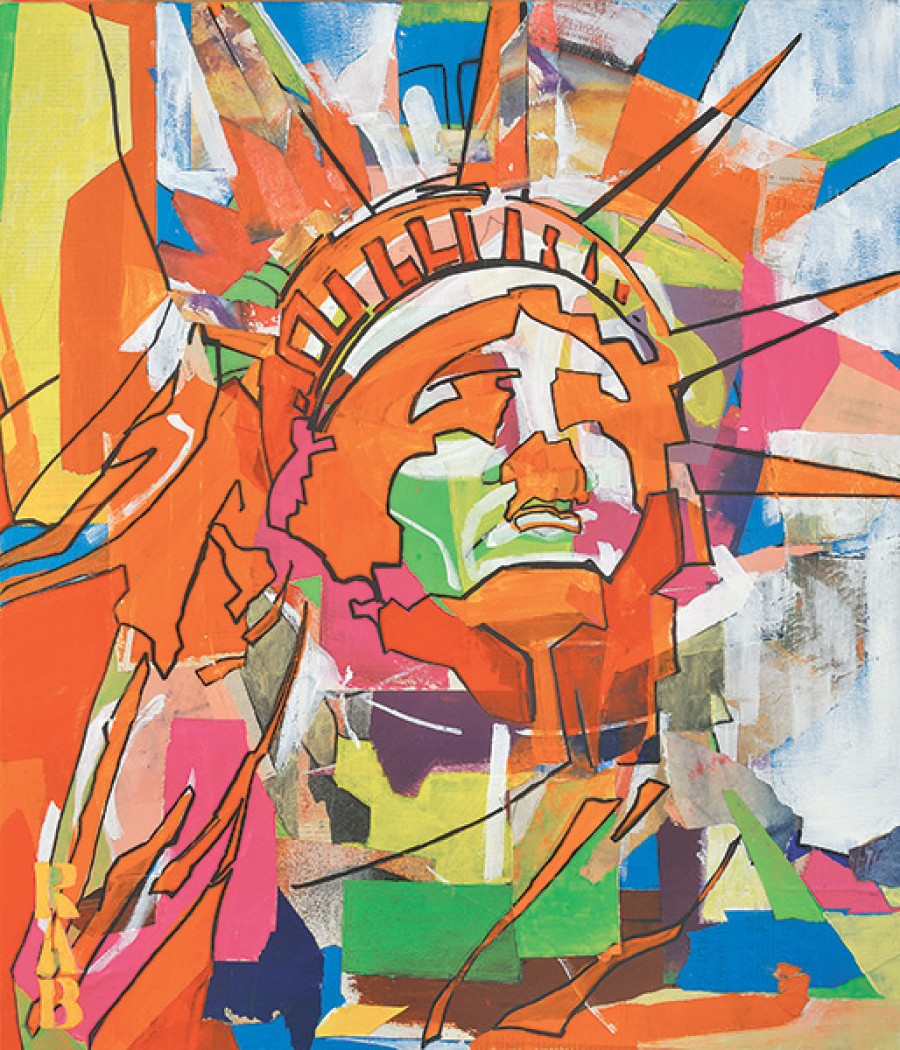Miscellaneous
Multiple realities
When I entered a new land in the summer of 2015, I often found myself asking, “Where in the world am I?” I was 12 time zones away from my home.
Kunti Adhikari
When I entered a new land in the summer of 2015, I often found myself asking, “Where in the world am I?” I was 12 time zones away from my home. But time was not the only thing that confused me: Most ordinary daily practices seemed downright irrational. Everything seemed so weird: The students in sleeveless tops and half pants (even on campus!); people’s obsession with icy water, even during the frigid winter; the ridiculous number of national flags almost everywhere; hilarious TV commercials; and the measurement of temperatures in Fahrenheit, distances in miles, and weight in pounds. I felt overwhelmed. I wondered how I would navigate my life as a graduate student in such a strange setting. At the same time, I was quite fascinated by the diverse cultural perspectives in my new community.
My journey from a small country in South Asia to the United States, and my transition from a big fish to a small fish in a university with over 50,000 students exposed me to global cultural practices from around the world. The Fulbright Scholarship Programme I was in, gave me a life-changing experience. It transformed me from a national citizen to a global one. For me, it meant much more than just attending the classes in an entirely new academic setting. Attending a university with thousands of international students immersed me into an international community with mystifying but rich cultures and a variety of strange ‘Englishes’.
It took me a while to realise that in American English “Hi, how are you?” meant a quick greeting, not really a question. The way Americans approach their professors is completely different from the way we Nepalis interact with them. I still remember the day during my first semester when one of my American friends was giving a classroom presentation. I was shocked to see him wearing half pants and chewing something. I just wanted to stop him and ask, “Are you serious? You are in the classroom giving a presentation!” I looked at my professor, but she seemed unperturbed. At the time, I asked myself “What in the world is going on here?”
But most importantly, I got to learn about some interesting dissimilarities that exist in cultures around the globe. Cultural exchange turned out to be the best ever experience; it opened my eyes wide and altered the way I view the world. Expressions and gestures completely acceptable in one context may completely offend in another. What is customary in my society may be considered totally unethical and immoral in another part of the globe. The existence of an absolute truth or reality is nothing more than a myth. A practice that is strictly prohibited in my Hindu culture, such as consuming certain food like beef, may sound absolutely fine to a person from the other culture. After all, values and beliefs are culture, place, and time-specific.
I also never realised that encountering people with distinctive perspectives, backgrounds, and life experiences could feel so liberating. It transformed me into an easy going, accepting individual. Despite all the distinctness in their preferences and background, I realised that human beings are so similar: They all easily comprehend the language of a smile and the language of love. This is what keeps them connected to each other.
Judging a person without even walking a few miles in their shoes is nothing if not shallow. I was surprised to discover that my fellow international students behaved completely differently than how I anticipated. The assumptions I previously held about Chinese, Pakistanis, Russians, Germans, Japanese, South Koreans, and Mexicans proved to be all wrong. In fact, I ended up building good relations with all of them. Today, these friendships have made this big world seem much smaller.
As an international student from a society with strict restrictions for women, I was stunned to find that almost all of my professors, most of the staff at offices, and even most of the bus drivers were female! I found that the women work outside their home unlike in my society, where the majority of the women do only unpaid jobs. It was exciting to see that the female workers overtook their male counterparts in most of the workplaces, even in public offices, hospitals, schools, and universities.
I found it really tough to think beyond the beliefs imprinted in me by my society. Living abroad prompted me to remove the prejudiced lens set in my eyes by my society so that I could view this amazing world through neutral eyes. After spending two incredible years in the diverse community abroad, I found myself transformed. This experience has prepared me to expect the unexpected, get out of my comfort zone, think on my feet, and accept the existence of multiple realities in this world. As a global citizen, I am aware of developing my cross-cultural understanding, broadening my mind, and leaving an impact at home and abroad.




 20.12°C Kathmandu
20.12°C Kathmandu










